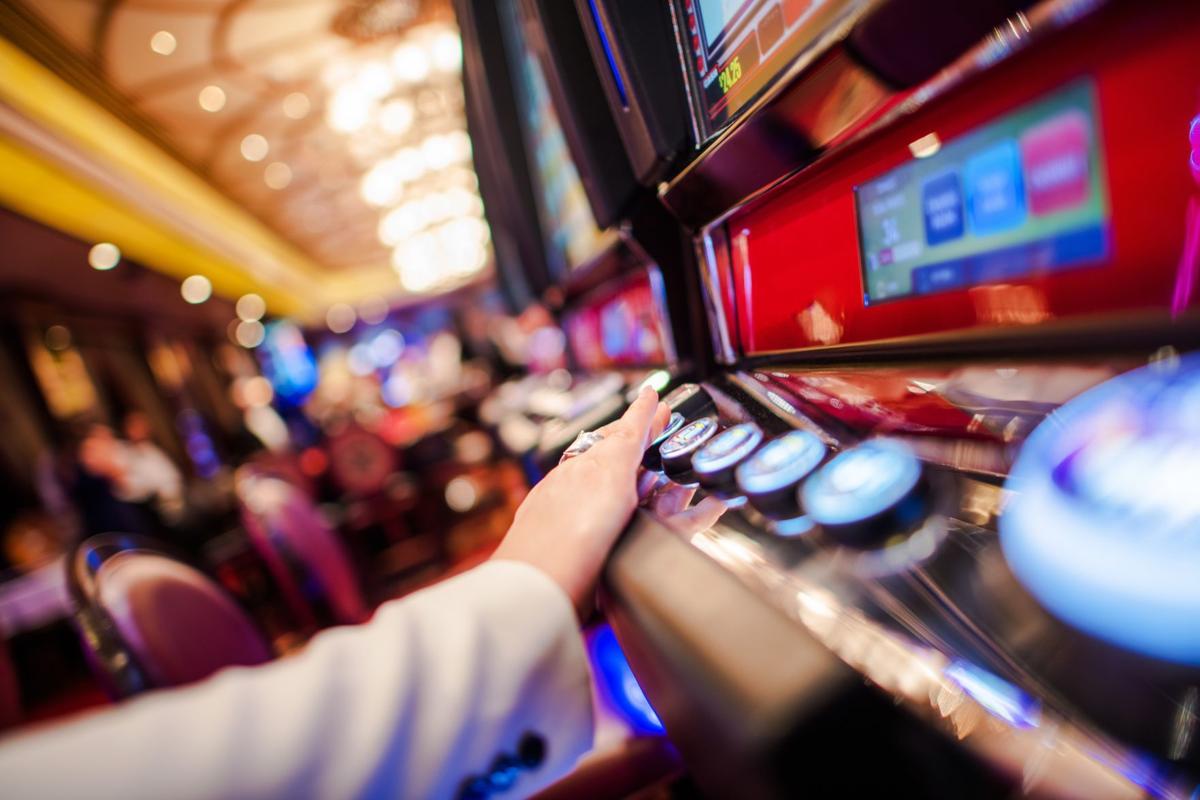Illegal Gambling
The effort is a component of AGA’s “Stop Illegal Gambling – Play it Safe” initiative which is uniting gaming and law enforcement to expose the massive illegal gambling market that preys on consumers, siphons tax revenues and funds violent crime. AGA also launched a new website – StopIllegalGambling.org – to serve as an information hub. Organized crime groups often run illegal gambling operations. These groups often use the money made from illegal gambling to fund other criminal activities, like the trafficking of humans, drugs. Santa Ana police seized six gambling machines, $2,700 and methamphetamine from the property. Police take 6 into custody at illegal gambling house in Santa Ana - Los Angeles Times. Illegal gambling is sometimes associated with organized crime and racketeering. The state of Colorado heavily regulates gambling and has made most gambling illegal. The reason the state restrains individuals from participating in gambling activities is to “safeguard the public against the evils induced by common gamblers and coming gambling.
Gaming law is the set of rules and regulations that apply to the gaming or gambling industry. Gaming law is not a branch of law in the traditional sense but rather is a collection of several areas of law that include criminal law, regulatory law, constitutional law, administrative law, company law, contract law, and in some jurisdictions, competition law. At common law, gambling requires consideration, chance and prize, legal terms that must be analyzed by gaming lawyers within the context of any gaming operation.[1]
Gaming law is enormously complex. In the United States, it involves federal and state law considerations.[2][3] In Canada, it involves federal and provincial law considerations, in a variety of legal disciplines.[4]

United States[edit]

In the United States, illegal gambling is a federal crime if it is done as a business.[2] However, each of its states has its own laws regarding the regulation or prohibition of gambling.[3] States that permit such gaming usually have a gaming control board established to oversee the regulation of the industry, such as licensing of those employed in the gaming industry. States that permit casinos and similar forms of gaming often have strict zoning regulations to keep such establishments away from schools and residential areas.
Ukraine[edit]
Parliament outlawed gambling in 2009 after a May 2009 fire in a gambling hall in Dnipropetrovsk that killed nine people. The Ukrainian parliament passed the law 'On Prohibition of Gambling Business in Ukraine' (Gambling Ban Law) banning gambling business and any participation in gambling in Ukraine on May 15. The President of Ukraine Viktor Yushchenko signed the law on June 23 and on June 25 it came into force. The Law On Prohibition of Gambling Business in Ukraine also applied to internet casinos, it did not apply to lotteries.Parliament legalised gambling again on 14 July 2020. Albeit with regulations and age restrictions (minimum age of 22).[5]
Illegal Gambling Nc
Other jurisdictions[edit]
- Gambling Act 2005 (UK)
- Gaming Act 1845 (UK, repealed)
- Interactive Gambling Act 2001 (Australia)
See also[edit]
References[edit]
- ^Rose, I. Nelson; Owens, Martin D., Jr. (2009). Internet Gaming Law(PDF) (2 ed.). Mary Ann Leibert, Inc. Publishers. pp. 11–13. ISBN9781934854129. Retrieved 24 September 2017.
- ^ abFor federal law, see, e.g., '18 U.S. Code § 1955 - Prohibition of illegal gambling businesses'. Legal Information Institute. Cornell Law School. Retrieved 24 September 2017.
- ^ abHumphrey, Chuck. 'State Gambling Laws'. Gambling Law US. Archived from the original on 7 October 2011. Retrieved 24 September 2017.
- ^Hincer, Illkim (1 November 2016). 'Gaming in Canada: overview'. Practical Law. Thomson Reuters. Retrieved 24 September 2017.
- ^https://www.unian.info/economics/legislation-ukraine-s-parliament-legalizes-gambling-11073944.html
External links[edit]
- Center for Gaming Research at the University of Nevada, Las Vegas; produces reports, papers, and a monthly update

Gaming law is the set of rules and regulations that apply to the gaming or gambling industry. Gaming law is not a branch of law in the traditional sense but rather is a collection of several areas of law that include criminal law, regulatory law, constitutional law, administrative law, company law, contract law, and in some jurisdictions, competition law. At common law, gambling requires consideration, chance and prize, legal terms that must be analyzed by gaming lawyers within the context of any gaming operation.[1]
Gaming law is enormously complex. In the United States, it involves federal and state law considerations.[2][3] In Canada, it involves federal and provincial law considerations, in a variety of legal disciplines.[4]
United States[edit]
In the United States, illegal gambling is a federal crime if it is done as a business.[2] However, each of its states has its own laws regarding the regulation or prohibition of gambling.[3] States that permit such gaming usually have a gaming control board established to oversee the regulation of the industry, such as licensing of those employed in the gaming industry. States that permit casinos and similar forms of gaming often have strict zoning regulations to keep such establishments away from schools and residential areas.

Ukraine[edit]
Parliament outlawed gambling in 2009 after a May 2009 fire in a gambling hall in Dnipropetrovsk that killed nine people. The Ukrainian parliament passed the law 'On Prohibition of Gambling Business in Ukraine' (Gambling Ban Law) banning gambling business and any participation in gambling in Ukraine on May 15. The President of Ukraine Viktor Yushchenko signed the law on June 23 and on June 25 it came into force. The Law On Prohibition of Gambling Business in Ukraine also applied to internet casinos, it did not apply to lotteries.Parliament legalised gambling again on 14 July 2020. Albeit with regulations and age restrictions (minimum age of 22).[5]
Other jurisdictions[edit]
Illegal Gambling Nrs
- Gambling Act 2005 (UK)
- Gaming Act 1845 (UK, repealed)
- Interactive Gambling Act 2001 (Australia)
See also[edit]
References[edit]
- ^Rose, I. Nelson; Owens, Martin D., Jr. (2009). Internet Gaming Law(PDF) (2 ed.). Mary Ann Leibert, Inc. Publishers. pp. 11–13. ISBN9781934854129. Retrieved 24 September 2017.
- ^ abFor federal law, see, e.g., '18 U.S. Code § 1955 - Prohibition of illegal gambling businesses'. Legal Information Institute. Cornell Law School. Retrieved 24 September 2017.
- ^ abHumphrey, Chuck. 'State Gambling Laws'. Gambling Law US. Archived from the original on 7 October 2011. Retrieved 24 September 2017.
- ^Hincer, Illkim (1 November 2016). 'Gaming in Canada: overview'. Practical Law. Thomson Reuters. Retrieved 24 September 2017.
- ^https://www.unian.info/economics/legislation-ukraine-s-parliament-legalizes-gambling-11073944.html
External links[edit]
- Center for Gaming Research at the University of Nevada, Las Vegas; produces reports, papers, and a monthly update